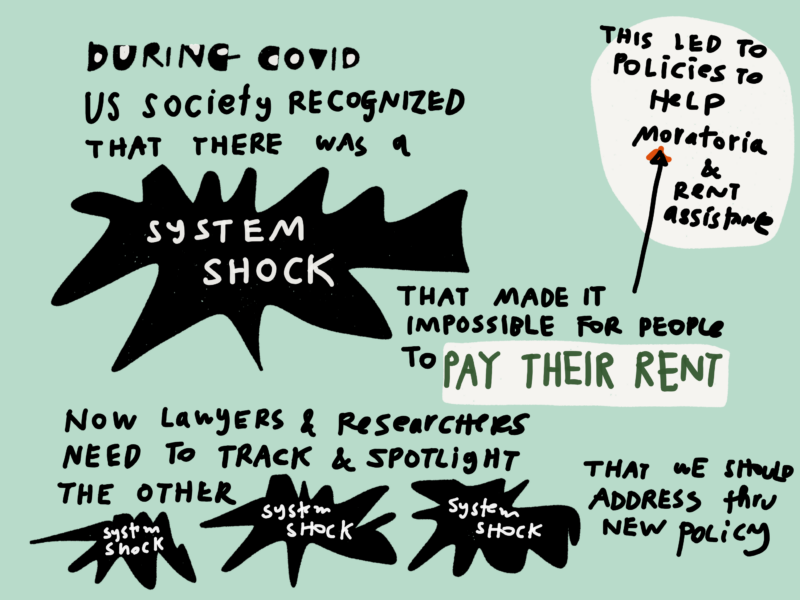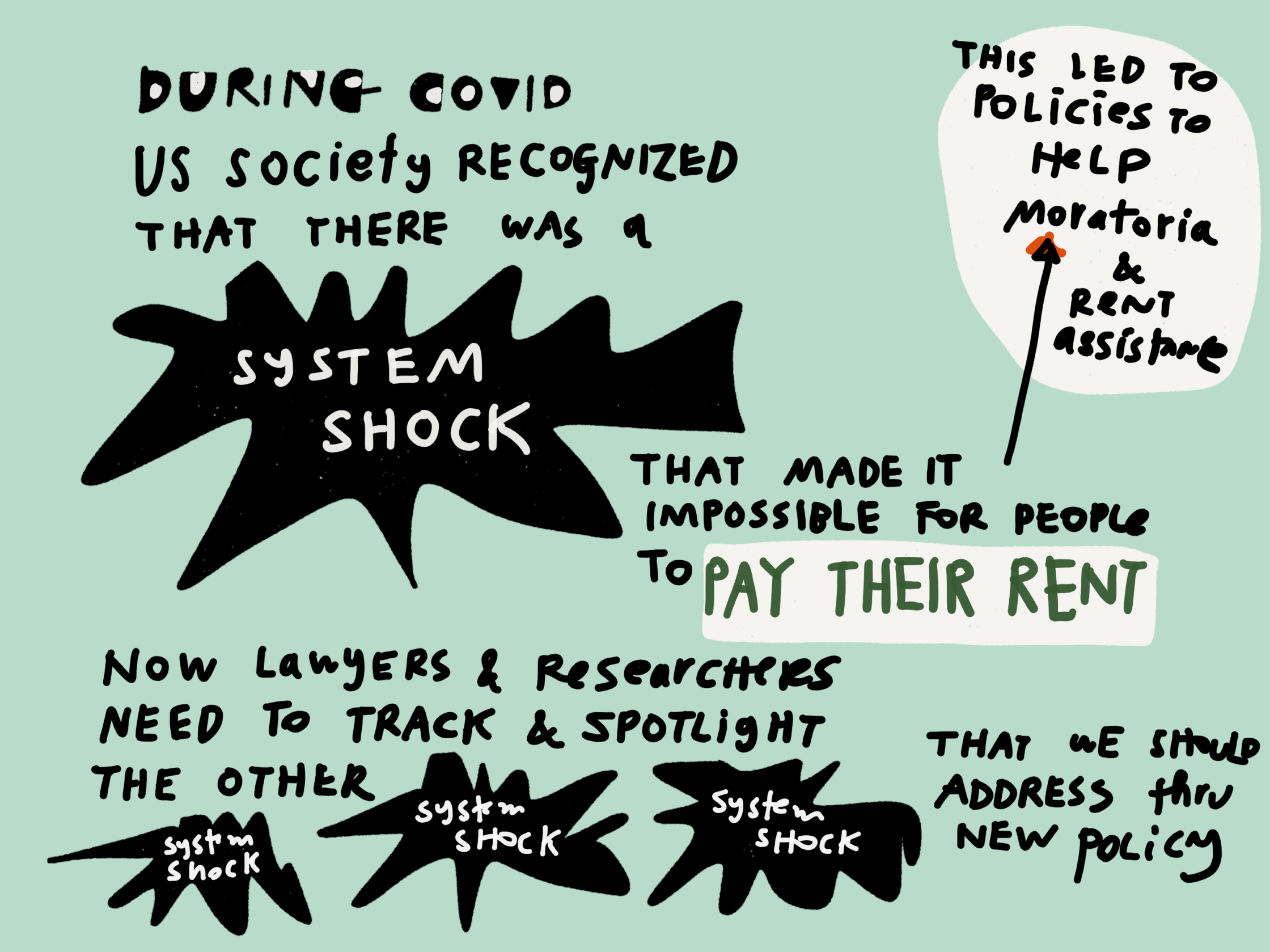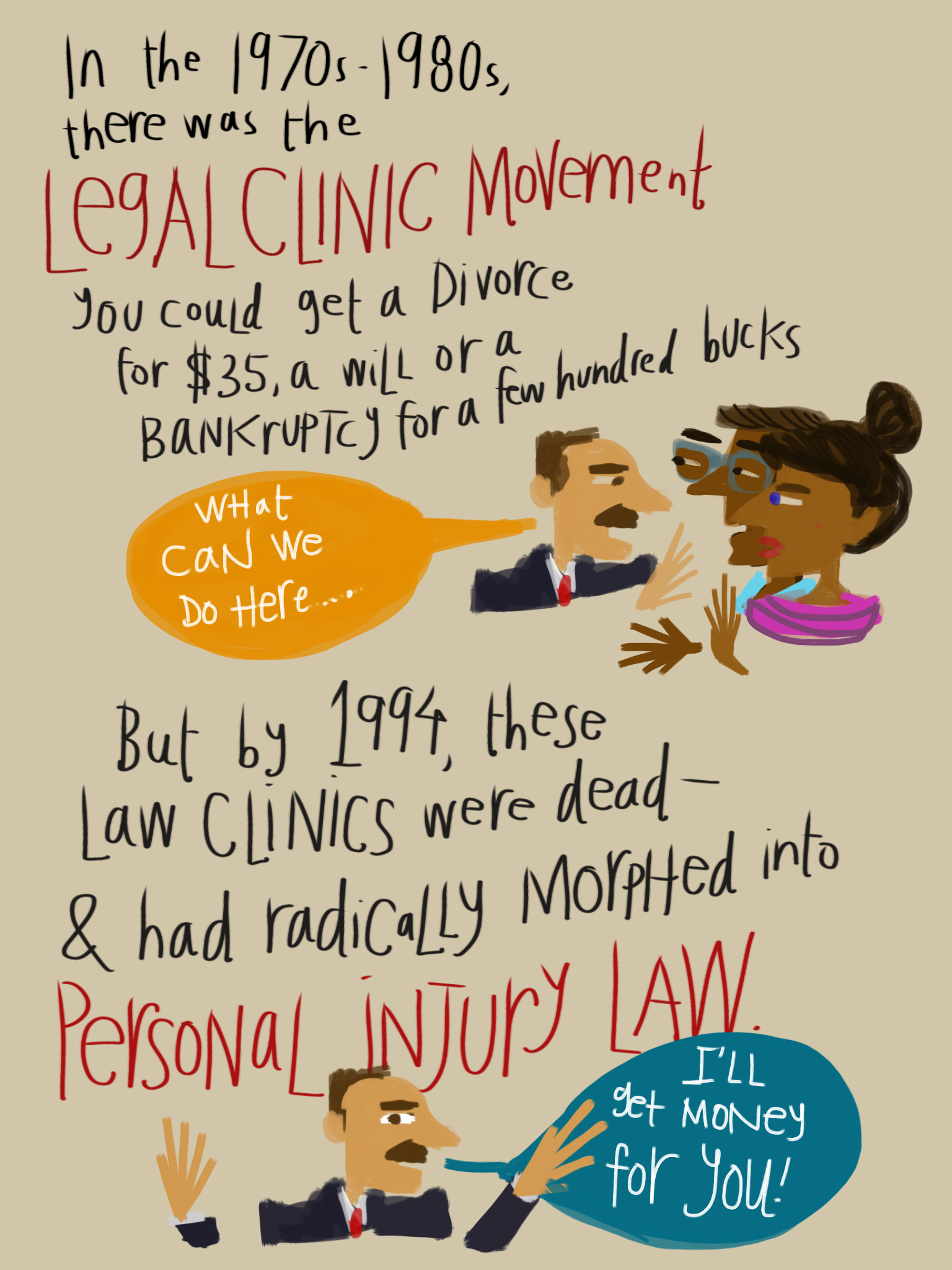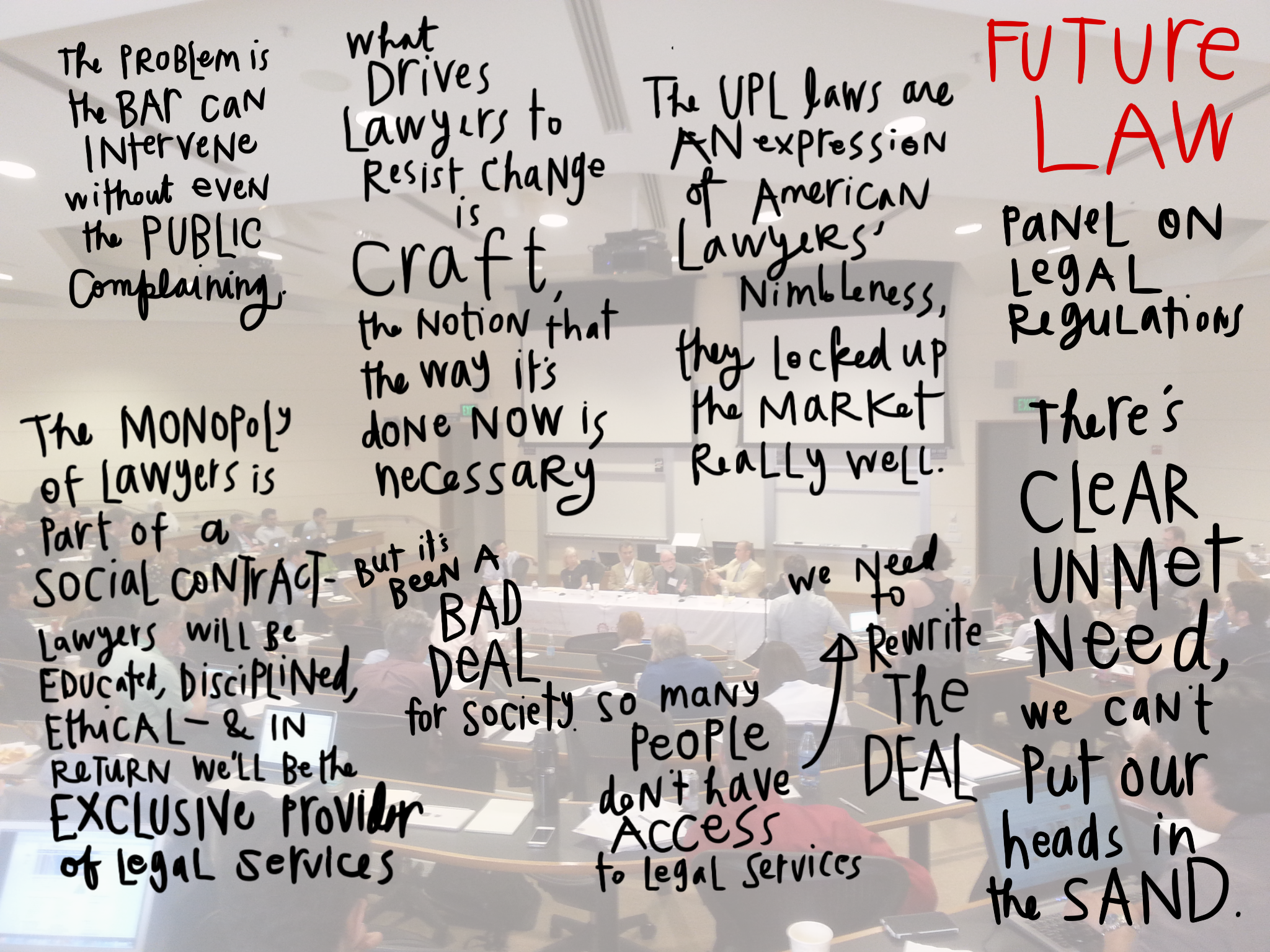At last week’s Access to Justice Symposium hosted by the Stanford Law Review, I was on a panel about A2J and housing, with a focus on evictions. What are the policies and services that can prevent evictions, or mitigate their harms?
One insight was about the temporary change to how housing & justice policy was made during Covid.
One of my co-panelists, Dr. Vincent Reina of the University of Pennsylvania, noted that during Covid, especially starting in spring 2020, policymakers in federal agencies, the White House, and local governments realized that a “System Shock” was happening. This System Shock was a recognized reason that people couldn’t pay their rent.
Because of this society-wide recognition of a System Shock, agencies changed their policies to help people with their rent problems. Federal and local agencies funded and built new Emergency Rental Assistance Programs. Governments created emergency moratoria that prohibited evictions from happening. Courts and city governments launched eviction diversion programs.

Now that the Covid System Shock has passed, all of these mitigating policies and services are disappearing.
The question is whether lawyers, researchers, public agencies, and others can learn from the Covid System Shock experience.
Can advocates and researchers identify new System Shocks that arise? Can they track trends and warning signs, (like with Covid) to build widespread consensus that a new System Shock is happening — and that there needs to be new policies and services to respond to it?
This points to a need for systemic data collection, advocacy organization to analyze trends and spot System Shocks, and to make coherent policy proposals that can address these Shocks — like more rent relief, court rule changes, and access to counsel.



